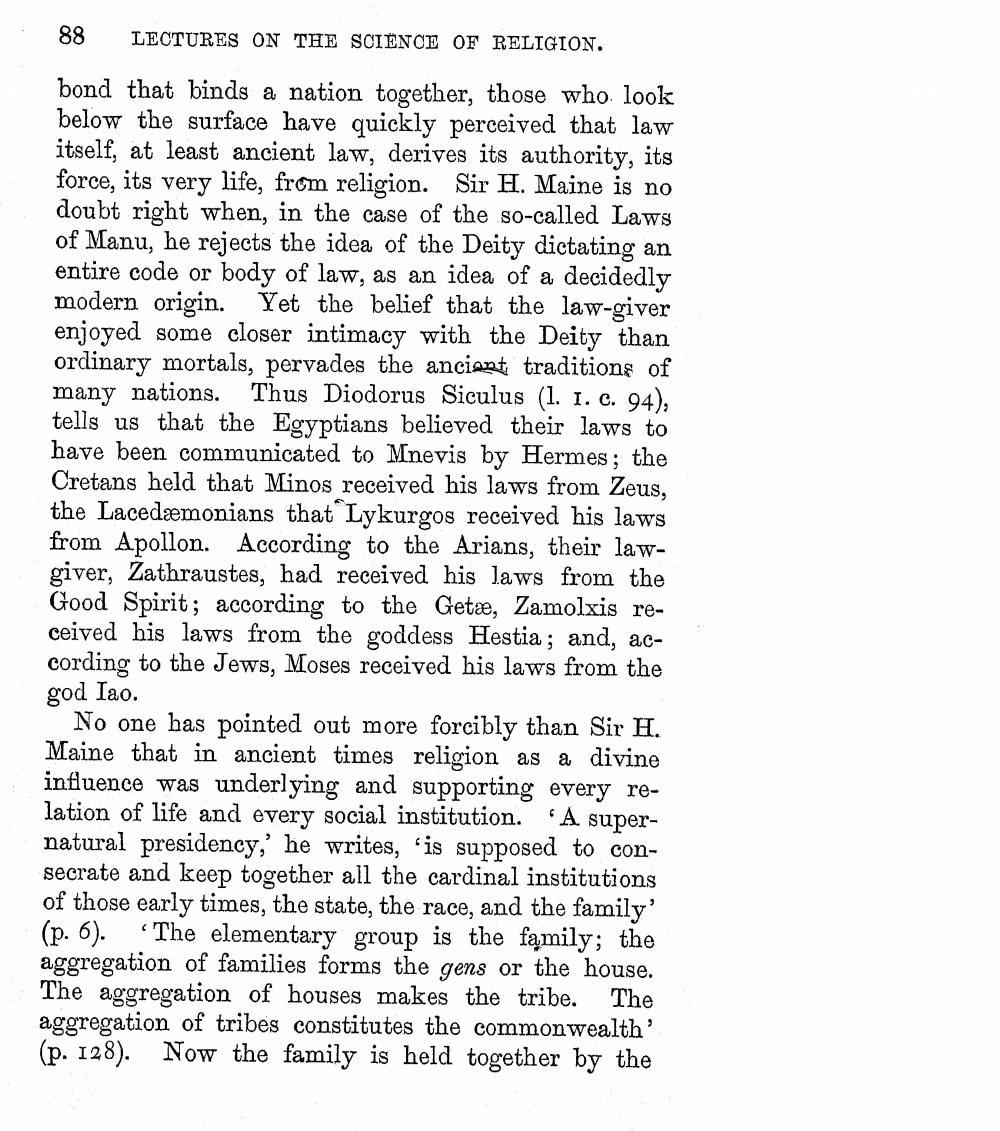________________
88
LECTURES ON THE SCIENCE OF RELIGION.
bond that binds a nation together, those who look below the surface have quickly perceived that law itself, at least ancient law, derives its authority, its force, its very life, from religion. Sir H. Maine is no doubt right when, in the case of the so-called Laws of Manu, he rejects the idea of the Deity dictating an entire code or body of law, as an idea of a decidedly modern origin. Yet the belief that the law-giver enjoyed some closer intimacy with the Deity than ordinary mortals, pervades the ancient traditions of many nations. Thus Diodorus Siculus (1. 1. c. 94), tells us that the Egyptians believed their laws to have been communicated to Mnevis by Hermes; the Cretans held that Minos received his laws from Zeus, the Lacedæmonians that Lykurgos received his laws from Apollon. According to the Arians, their lawgiver, Zathraustes, had received his laws from the Good Spirit; according to the Getæ, Zamolxis received his laws from the goddess Hestia; and, according to the Jews, Moses received his laws from the god Iao.
No one has pointed out more forcibly than Sir H. Maine that in ancient times religion as a divine influence was underlying and supporting every relation of life and every social institution. A supernatural presidency,' he writes, 'is supposed to consecrate and keep together all the cardinal institutions of those early times, the state, the race, and the family' (p. 6). 'The elementary group is the family; the aggregation of families forms the gens or the house. The aggregation of houses makes the tribe. aggregation of tribes constitutes the commonwealth' (p. 128). Now the family is held together by the
The




